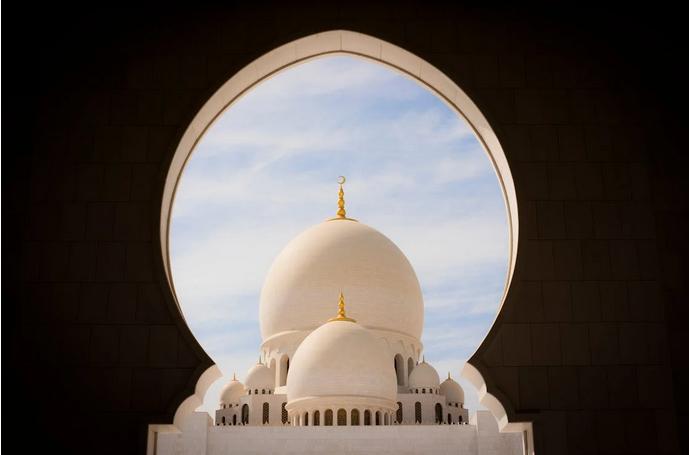Chapter 14: Seeking Knowledge: The Path to Personal and Spiritual Growth
The Importance of Seeking Knowledge (Both Religious and Worldly) and How It Enhances One’s Relationship with Allah and Society
Introduction
The pursuit of knowledge holds a significant place in Islam, and it is viewed not merely as an intellectual exercise but as a sacred duty. The quest for knowledge is highly encouraged in the Quran and the teachings of Prophet Muhammad (PBUH). Knowledge in Islam is not limited to religious knowledge alone but encompasses both religious and worldly sciences, with the aim of benefiting humanity and drawing closer to Allah.
The importance of knowledge is encapsulated in the Quranic verse:
“Allah will raise those who have believed among you and those who were given knowledge, by degrees.”
(Surah Al-Mujadila, 58:11)
This verse indicates that knowledge is a means of spiritual elevation and closeness to Allah. It is through knowledge that individuals can navigate the complexities of life, fulfill their religious duties, contribute to the betterment of society, and develop a deeper understanding of the Creator. Knowledge allows for the integration of both inner development (through the acquisition of religious knowledge) and outer development (through the understanding of worldly matters) that together shape a holistic, balanced, and fulfilling life.
This chapter will explore the significance of seeking both religious and worldly knowledge, how it impacts one’s relationship with Allah, and the positive influence it has on individuals and society.
1. The Quran and the Importance of Knowledge
A. Knowledge as a Divine Command
The Quran places a strong emphasis on seeking knowledge. The very first revelation to Prophet Muhammad (PBUH) was about knowledge:
“Read in the name of your Lord who created.”
(Surah Al-Alaq, 96:1)
This command is profound, as it calls for the pursuit of knowledge in the name of Allah, framing it as an act of worship. The first word revealed—Iqra (read)—is a call to engage with the world through learning, reading, and seeking wisdom.
Throughout the Quran, Allah encourages the acquisition of knowledge that leads to self-awareness, spiritual growth, and a better understanding of the world. For instance, the Quran commands believers to reflect on the natural world and the signs of Allah present in it:
“Indeed, in the creation of the heavens and the earth, and the alternation of the night and the day, are signs for those of understanding.”
(Surah Al-Imran, 3:190)
These verses show that the pursuit of knowledge, whether through religious study or scientific inquiry, is a way to recognize the magnificence of Allah’s creation, thereby deepening one’s faith and reverence for Him.
B. Knowledge as a Path to Paradise
In Islam, knowledge is seen as an essential tool for personal and spiritual growth. It is the key to both worldly success and eternal salvation. The Prophet Muhammad (PBUH) said:
“Whoever treads a path seeking knowledge, Allah will make easy for him the path to Paradise.”
(Sahih Muslim)
This hadith underscores the centrality of knowledge in the believer’s journey toward Allah. Knowledge of religious principles is crucial for fulfilling one’s duties toward Allah, such as prayer, fasting, and charity. Moreover, knowledge of worldly affairs enables Muslims to lead a productive, ethical life that contributes positively to society and the world at large.
2. Religious Knowledge: Deepening One’s Connection to Allah
A. Understanding the Core Tenets of Islam
Religious knowledge forms the bedrock of a Muslim’s faith and practice. Understanding the Quran, the Hadith (sayings of the Prophet), and the various schools of thought in Islamic jurisprudence (fiqh) is essential to fulfilling religious obligations correctly. The Prophet Muhammad (PBUH) said:
“Seeking knowledge is an obligation upon every Muslim.”
(Sunan Ibn Majah)
Religious knowledge guides Muslims in all aspects of their lives, from performing acts of worship (like prayer and fasting) to ethical and moral behavior in their interactions with others. By studying the Quran and Hadith, a Muslim strengthens their relationship with Allah and gains clarity on how to live in accordance with divine guidance. The deeper one’s understanding of the tawhid (Oneness of Allah), risalah (the Prophethood), and akhirah (the Afterlife), the more one can live with purpose and peace.
B. Knowledge as a Means of Spiritual Purification
Seeking religious knowledge is also a means of purification. The Prophet Muhammad (PBUH) said:
“The best among you are those who learn the Quran and teach it.”
(Sahih al-Bukhari)
By learning the Quran and its interpretations, a Muslim is not only gaining knowledge but also purifying their heart, cultivating virtues like humility, patience, and sincerity. Knowledge helps one to overcome ignorance and internal confusion, giving clarity in both faith and actions. It helps in the understanding of spiritual truths, such as the purpose of life, the importance of worship, and the necessity of adhering to ethical principles.
Furthermore, religious knowledge allows for a deeper connection with Allah, fostering a sense of God-consciousness (taqwa). The more a person understands the guidance of Allah, the more they are able to implement it in their daily life. It also aids in combating the spiritual diseases of the heart such as arrogance, pride, and materialism, all of which distance a person from Allah.
C. The Role of Scholars and Teachers in Islam
In Islam, scholars (ulama) and teachers play an essential role in disseminating religious knowledge. The Prophet Muhammad (PBUH) emphasized the importance of seeking knowledge from those who possess it:
“The scholars are the heirs of the Prophets.”
(Sunan Abu Dawood)
This statement highlights the role of scholars in preserving and passing on the teachings of Islam. By seeking knowledge from credible sources, a Muslim ensures that their understanding of Islam is sound and rooted in authentic teachings. Scholars serve as guides, providing interpretation (tafsir) of the Quran and Hadith and offering solutions to contemporary issues based on Islamic principles.
3. Worldly Knowledge: Benefiting Society and Enhancing the Human Condition
A. The Value of Worldly Knowledge in Islam
Islam does not separate religious knowledge from worldly knowledge. On the contrary, both are seen as complementary. The Prophet Muhammad (PBUH) said:
“Seek knowledge from the cradle to the grave.”
(Sunan Ibn Majah)
This highlights the importance of acquiring knowledge throughout one’s life. Worldly knowledge includes the sciences, arts, medicine, economics, and various other disciplines that help improve the individual’s well-being and contribute to the advancement of society. The pursuit of such knowledge is an act of worship, as long as it is used for righteous and beneficial purposes.
The Quran encourages the acquisition of worldly knowledge, emphasizing its role in understanding and appreciating the world Allah has created:
“He it is who created for you all that is on earth.”
(Surah Al-Baqarah, 2:29)
Through the study of nature, science, mathematics, engineering, and other subjects, Muslims are encouraged to reflect on the signs of Allah and appreciate the perfection of His creation. Worldly knowledge provides the tools for solving real-world problems, improving healthcare, advancing technology, and fostering sustainable development—all of which are crucial for the well-being of humanity.
B. Worldly Knowledge as a Means of Social Responsibility
Worldly knowledge is essential for addressing the challenges of contemporary society, including poverty, injustice, inequality, and environmental degradation. Islam teaches that acquiring knowledge of the world equips individuals to serve humanity and contribute to the common good.
The Prophet Muhammad (PBUH) said:
“The best of people are those that bring most benefit to the rest of mankind.”
(Darul Qutni)
In this context, knowledge is not just for personal advancement but for societal progress. By studying fields such as economics, law, medicine, and engineering, Muslims can contribute to the betterment of their communities, improve the quality of life, and build a more just and equitable society.
Islamic civilization, throughout history, has been a great proponent of the pursuit of knowledge in both religious and scientific fields. Scholars from the Islamic Golden Age made significant contributions to mathematics, astronomy, medicine, and philosophy, many of which continue to benefit humanity today. This tradition of learning underscores the central role of worldly knowledge in Islam and its essential connection to social justice, human progress, and the overall well-being of society.
4. Knowledge and Its Impact on Society
A. Knowledge as a Source of Social and Economic Development
The pursuit of knowledge has a profound impact on the social and economic development of a society. Communities that prioritize education, scientific inquiry, and the cultivation of intellectual capital experience greater prosperity, social harmony, and economic sustainability. Knowledge enables individuals to contribute positively to society and become active participants in addressing the challenges faced by their communities.
In an Islamic society, the value of knowledge goes beyond individual benefit. It is seen as a collective asset that can be harnessed to promote justice, equality, and the common good. Islamic economics, for example, advocates for ethical trade practices, equitable distribution of wealth, and the elimination of poverty. The acquisition of knowledge allows individuals to understand the principles of Islamic economics and use it to build a society that promotes the well-being of all its members.
B. The Role of Knowledge in Fostering Unity and Cooperation
The pursuit of knowledge also fosters unity within the Muslim community. By acquiring knowledge of the Quran, the teachings of the Prophet, and the various sciences, Muslims can develop a sense of solidarity and cooperation, both among themselves and with other communities. Knowledge facilitates dialogue, mutual understanding, and collaboration across different cultures and societies, promoting peaceful coexistence and mutual respect.
Conclusion
The pursuit of knowledge, both religious and worldly, is a central tenet of Islam. It is not just an intellectual pursuit but a spiritual obligation, a means of fulfilling one’s purpose in life, and a pathway to success in both this world and the Hereafter. By seeking knowledge, Muslims strengthen their relationship with Allah, purify their hearts, and contribute to the betterment of society.
Religious knowledge deepens one’s faith and enhances the understanding of Islamic teachings, while worldly knowledge empowers individuals to improve their communities and address global challenges. The acquisition of knowledge in both realms is intertwined, as it enables Muslims to live balanced, purposeful lives, fulfilling their duties toward Allah, themselves, and others. As the Quran and Hadith repeatedly emphasize, knowledge is a means to attain closeness to Allah, improve one’s moral character, and create a positive impact on the world.
Therefore, the pursuit of knowledge remains a lifelong journey, and every Muslim is encouraged to continuously seek knowledge, both for their spiritual enrichment and for the welfare of society at large.


